Cross-Curricular School Trip To Sri Lanka
The Pearl of the Indian Ocean, Sri Lanka is a tropical island nation known for its stunning scenery, ancient ruins, religious temples and an abundance of wildlife.
Buddhism is the main religion in Sri Lanka and the landscape is characterised by shrines and temples. With a rich ancient history and culture, many ruins and monasteries have emerged from the lush vegetation.
Remnants of a colonial past are visible and this island nation has a turbulent recent history enduring a war which lasted for 30 years. Up in the cooler hill country, see the breathtaking landscape of tea plantations, paddy fields and waterfalls.
Experience local culture, friendly people and the colours, sounds and smells of both the towns and the countryside. Fifteen National Parks protect the exceptional wildlife which abounds on both land and sea.
With so many educational themes to explore, a cross-curricular school trip to Sri Lanka is an immersive educational experience which will leave a lifelong impression on your students.
Highlights
Dramatic Rock fortress of Sigiriya
Buddhist Cave Temples at Dambulla
Incredible wildlife in Yala National Park
Beautiful lakeside town of Kandy
Warwick SchoolThis really was a very special adventure and there was not a moment when we were not busily engaged in something exciting, remarkable and different.
Suggested itinerary
What's included
Recommended excursions
The dramatic 5th-century rock fortress of King Kasyapa is a UNESCO World Heritage site and a fine example of ancient Sri Lankan engineering and urban planning. The fortress and palace are built on top of a 200m rock with access by steep steps through the mouth of a carved lion. Sigiriya is renowned for its 5th-century frescoes which have similarities to the paintings of the Ajanta Caves in India. The stunning complex includes water gardens, a moat, terraced gardens and archaeological features. Water is pumped to the summit by an ingenious hydraulic system.
A chance to experience authentic Sri Lankan rural village life and local culture. Venture into the countryside of Habarana and observe daily life along the many waterways which make this land so fertile. See the fishermen, farmers and villagers washing clothes. Experience traditional Sri Lankan food, Pol roti (coconut flatbread) and lunumiris (a spicy concoction of chillies, onions and salt).
This UNESCO World Heritage site was a royal capital for three hundred years between the 11th and 13th centuries, and a centre of culture and religion. Polonnaruwa consists of ruins of the glorious kingdom of the Great King Parakramabahu. 1153-1186 was a golden age of trade and agriculture reflected in the scale, opulence and sophistication of the ruined city. The archaeological park is adorned with resting Buddha statues and fantastically carved Hindu sculptures, tombs and temples
Dambulla Rock Temple, dating from the 1st century BC, has been an important place of pilgrimage since that time. An active Buddhist Monastery today, this is the best-preserved cave temple complex in Sri Lanka. The natural caves house important Buddhist murals and over 150 statues of Lord Buddha in five magnificently constructed cave temples flanking the golden temple of Dambulla. A giant golden Buddha statue sits above the entrance to the temples.
Matale today takes immense pride in its history woven around spices. Stop at a spice garden where you can try a cup of refreshing herbal tea. The lively town is full of activity and colour. This rich agricultural region produces tea, rubber, vegetables and spices.
The Royal Botanical Gardens of Peradeniya is 147 acres of lush, landscaped gardens with pavilions, a conservatory, an orchid house and a giant Javan fig tree.
Last ruled by King Sri Wickrama Rajasinghe before coming under British rule in 1815, Kandy is a UNESCO World Heritage Site & the last royal capital of Sri Lankan kings. Take a stroll through this small lakeside town, cradled amongst misty hills. Walk through the colourful fruit and vegetable market. Explore the bazaar and the arts and crafts centre. There is a chance to see many precious stones from Sri Lanka at the Gem Museum. The Temple of the Tooth Relic of Lord Buddha is an important place of pilgrimage located in the former palace of the Kandyan King.
Sri Lanka is one of the largest tea producers in the world, an industry founded in the 19th century during the British colonial period. Take a tour up to the cooler misty hills covered with a blanket of tea plantations. See ladies plucking the leaves from the tea plants dressed in their colourful saris. Visit a factory processing a prestigious brand of Ceylon Tea. End your day with a cup of Pure Ceylon tea.
Visit the former British colonial retreat of Nuwara Eliya, known as the ‘Little England’ of Sri Lanka. Once governed by English & Scottish tea planters, the town is studded with colonial bungalows, hedgerows & one of the finest 18-hole golf courses in the world. Drive through the green valleys of the hill country, pierced by endless waterfalls & dotted with tea pluckers draped in brightly coloured saris.
The highlands town of Ella, 1,041 metres above sea level, is surrounded by hills covered in tea plantations and jungle. Cooler temperatures, lush vegetation, waterfalls and spectacular views have all contributed to Ella becoming a popular tourist destination.
The Elephant Transit Home in the Udawalawe National Park cares for orphaned elephant calves until they can be released back into the wild. Visit the Elephant Transit Home in time for the feeding. Here, the students will be able to see the orphaned baby elephants being fed milk, which the hungry calves need every three hours.
Take a game drive through Sri Lanka’s most visited National Park, a haven for indigenous wildlife. The vast forest, grasslands and lagoons are home to many species including herds of elephants, crocodiles, sloth bears, spotted deer and jackals. Yala’s most famous resident species is the leopard and the park boasts one of the highest density of leopards in the world. There are hundreds of colourful bird species to admire.
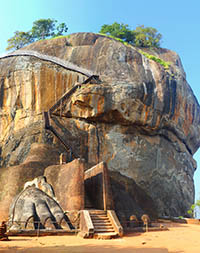
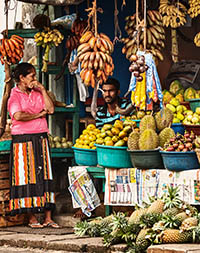
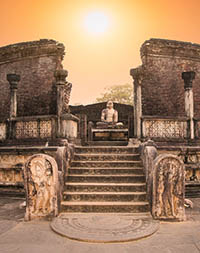
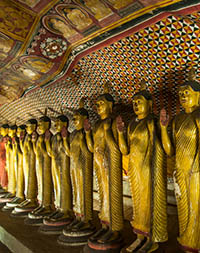
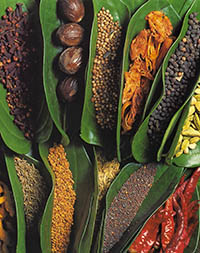
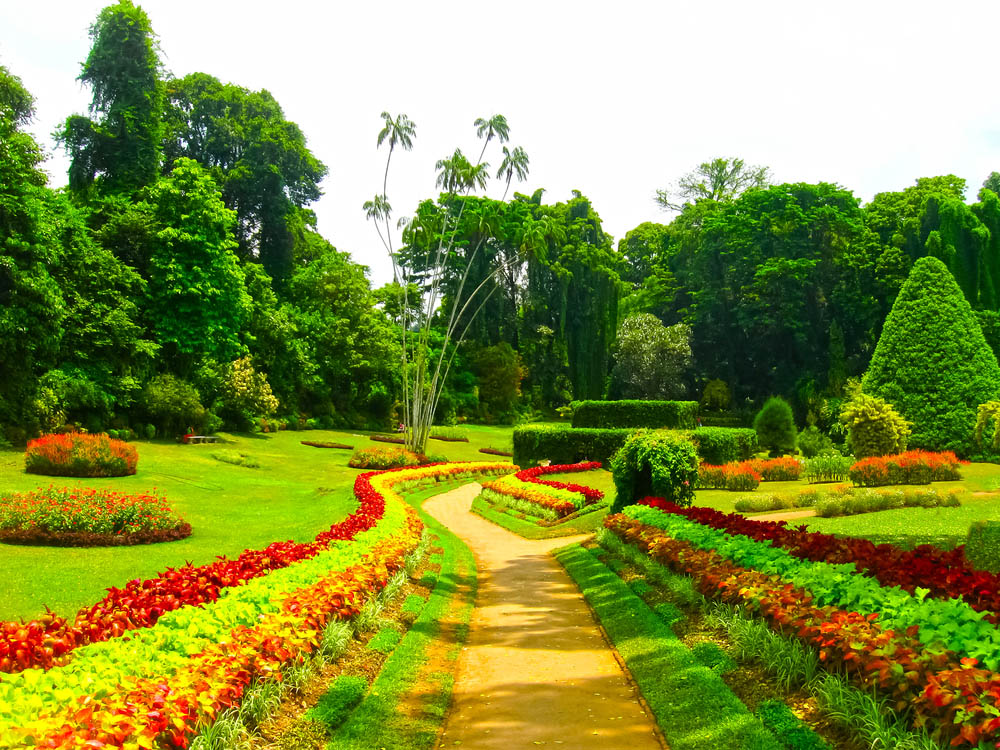
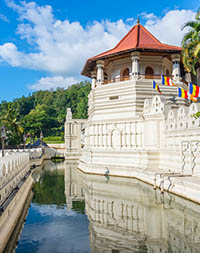
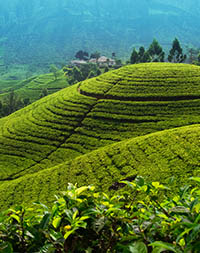
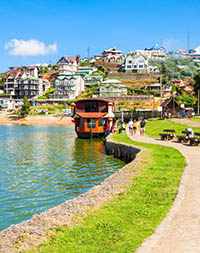
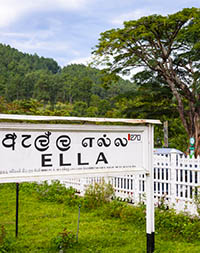
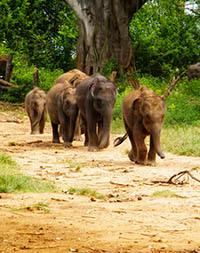
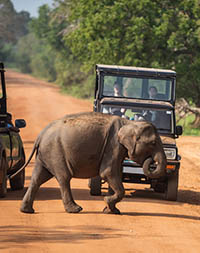
Typical accommodation
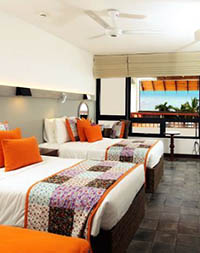
Why groups like it:
Facilities:
Learning outcomes
Subject focus
Students can:
- Gain a deeper understanding of Sri Lankan History and Politics
- Consider a range of issues around citizenship and history
- Consider the history of Colonialism
- Explore the belief systems of different religions
- Examine the economy of Sri Lanka
- Observe animal and birdlife in natural surroundings
- Consider the ethics around animal welfare and sustainable tourism
Student outcomes
Students will have had an opportunity to:
- Experience learning outside the classroom in another country – the culture, history, politics, geography, religion and art
- Gain a deeper understanding of human and physical geography and sustainability
- Build confidence and learn to value the skills and techniques needed for personal and team success
- Broaden the mind through the study of another culture
- Discover, explore and have fun with fellow students and teachers


